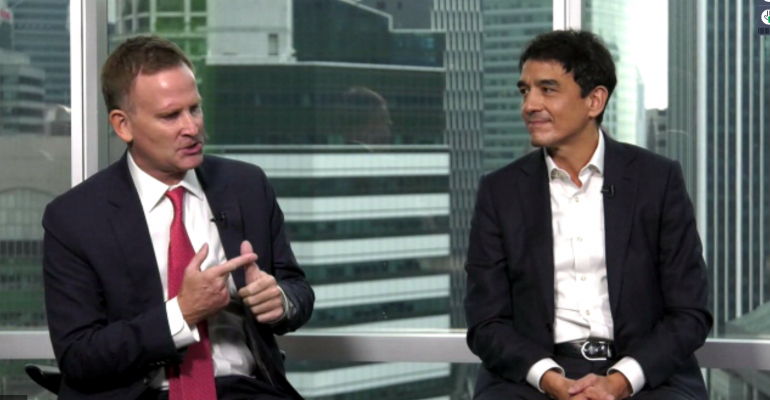Speaking at a Norwegian Business Association Singapore (NBAS) webinar, Laurence Odfjell, chair of Odfjell said: “The IMO has launched the findings now to go forward on carbon emissions and setting targets on reducing carbon intensity by 40% by 2030, some believe that is too little, but this is an important first step and one can see maybe future acceleration going forward.”
The results of last week’s IMO intercessional GHG working group have not only received criticism from environmental groups but also some industry bodies such as Danish Shipping.
Odfjell stressed the need to for the global industry and its stakeholders to set realistic targets on emissions that are achievable with current technologies.
“I think decarbonisation with existing technologies a goal of 40% seems achievable and that’s the positive, and I think it’s very important that IMO sets goals that are achievable. From the starting point it’s important that IMO and all stakeholders are working together to each set targets we can achieve and personally I am very in favour of that.”
BW Group chairman Andreas Sohmen-Pao quoted an African proverb that, “If you want to go fast go alone, if you want to go far go together”.
“One of the things we have to keep reminding ourselves are we in a sprint or a marathon, do we want to solve in the long run or chalk up quick wins in the short term. The great power and beauty of IMO, and we’re the only industry in the world that can this with global regulation, the beauty is we move the whole industry together and we go far because we go together,” he said.
While individual regulations might move faster the industry would not get as far in the long run. However, reaching consensus among 200 countries requires and lot of lobbying and time.
“I hope this regulatory cycle is quicker than ballast water management, but let’s give IMO some time to do its work, and rally country’s behind and we will find we will go further,” Sohmen-Pao said.
Copyright © 2024. All rights reserved. Seatrade, a trading name of Informa Markets (UK) Limited.
Add Seatrade Maritime News to your Google News feed.  |
